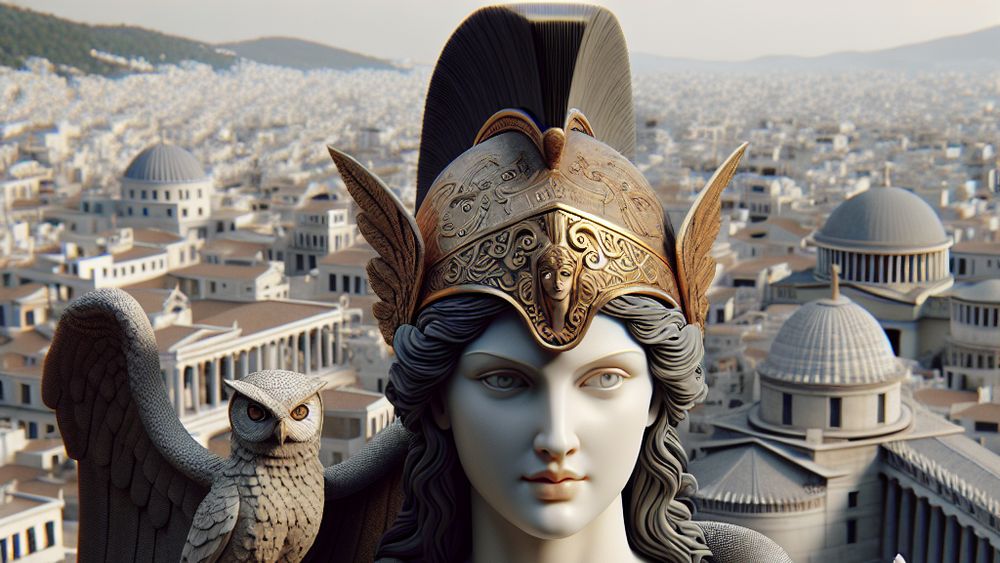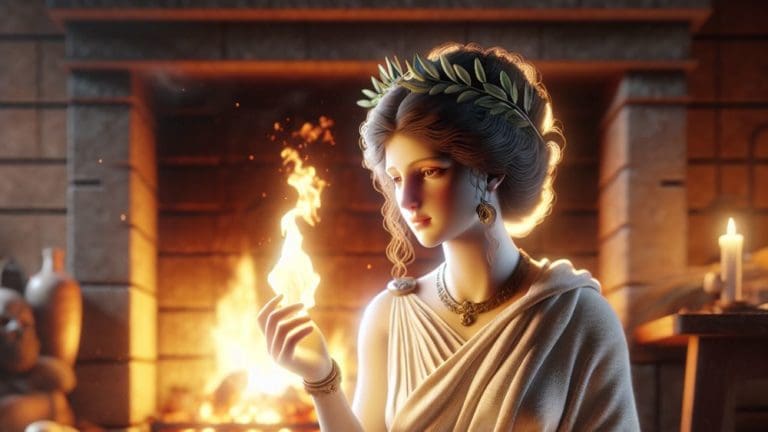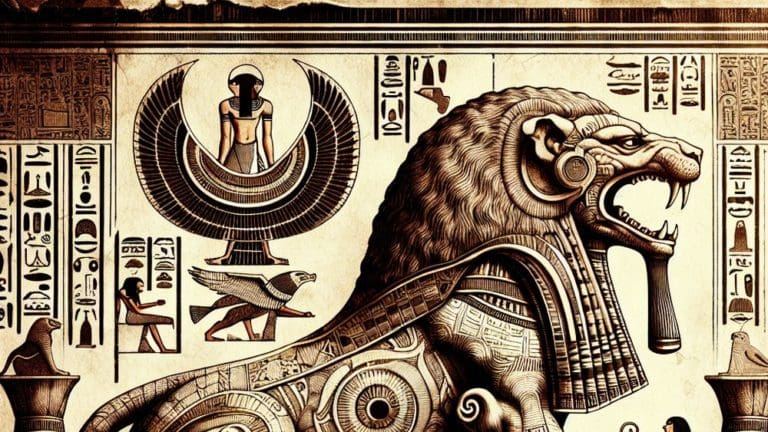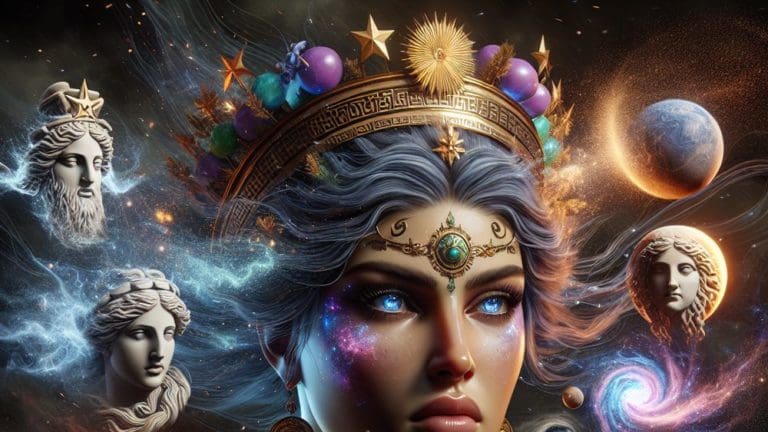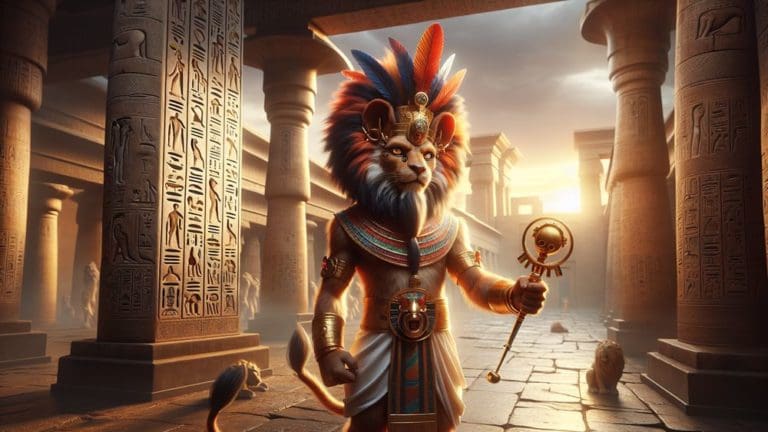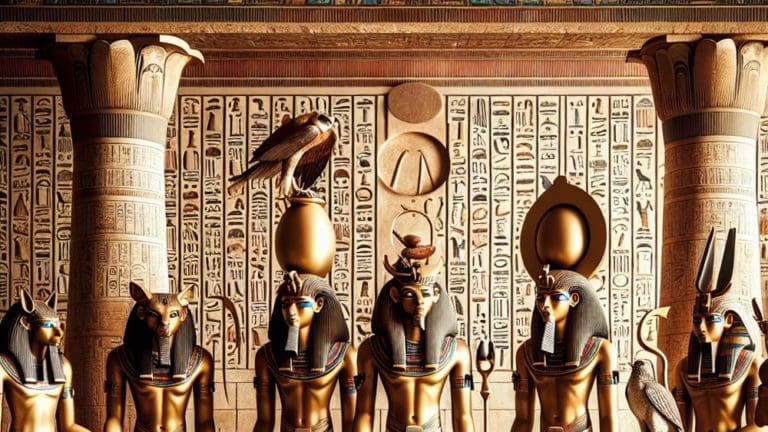Athena: Goddess Of Wisdom In Greek Mythology
Athena: Goddess Of Wisdom In Greek Mythology
Oh boy, where do we even start with exploring Athena, the goddess of wisdom in Greek mythology? She’s like that cool, collected friend who always has the best advice. But don’t let her calm demeanor fool you; she’s also a fierce warrior goddess who doesn’t take any nonsense. Athena is not just any deity; she’s one of the twelve Olympians who dwells on Mount Olympus, chilling with gods and goddesses who control everything from the sea to the underworld. I get it, diving into her story is like opening a treasure chest of ancient myths, each more fascinating than the last.
Key Points:
- Athena is the goddess of wisdom and warfare in Greek mythology.
- She was born from Zeus’s head fully armed.
- Athena’s symbols include the owl, olive tree, aegis, and spear.
- Known for her guidance in myths like The Odyssey and the Trojan War.
- Athena played a key role in protecting heroes like Perseus, Heracles, Odysseus, and Achilles.
- Worshipped in ancient Greece through festivals and temples, notably the Parthenon.
- Athena’s legacy embodies wisdom, courage, and strategy in modern representations.
Her tale is woven throughout Greek mythology, popping up in epic battles, guiding heroes, and even contributing to the naming of a certain famous city. Yes, we’re talking about Athens! But what makes Athena utterly awesome is her unique origin story (spoiler alert: it involves popping out of someone’s head fully armed), and her symbols, like the owl and olive tree, each packed with meaning and stories. So, let’s dive deep into the details of Athena’s story and see why she’s considered one of the most beloved figures in mythology.
The Birth and Origins of Athena
The story of Athena’s birth is as mind-blowing as they come in Greek mythology. Imagine Zeus, the king of the gods, having such a massive headache that he needs to split open his skull to relieve the pressure. And who pops out? Athena, fully grown and decked out in armor. Talk about an entrance!
The Unique Birth of Athena from Zeus’s Head
So, how did Athena’s birth come about? It’s a wild tale. Zeus, fearing a prophecy that his child with Metis would overthrow him, swallowed Metis while she was pregnant. But a child can’t be kept down easily, right? Fast forward, and Zeus experiences the mother of all headaches. Hephaestus, the god of blacksmiths and craftsmen, gives Zeus’s skull a hefty whack, and voilà, Athena emerges, battle-ready and shouting a war cry.
- Zeus feared the prophecy about his mighty child.
- Swallowed Metis, the goddess of wisdom.
- Zeus then experiences an unbearable headache.
- Hephaestus cracks Zeus’s skull open.
- Athena emerges, fully grown and armed.
This birth highlights Athena’s connection to wisdom and war, being born from Zeus, the king of the gods, and Metis, the goddess of wisdom. It’s like she was destined for greatness from the start.
Athena’s birth from Zeus and Metis symbolizes her destined greatness, embodying wisdom and war.
Athena’s Role Among the Olympian Gods
As an Olympian goddess, Athena held a powerful position among the gods. She was Zeus’s favorite child, which says a lot considering the guy’s track record. Athena was known for her wisdom, courage, and strategic warfare abilities, making her an indispensable ally in any cosmic throwdown. Unlike Ares, the god of war, who was all about the chaos of battle, Athena was about smart, strategic moves. No big deal, she was just the goddess everyone turned to when they needed advice on war tactics or solving disputes. Easy to see why she was one of the few virgin goddesses; she was too busy being awesome.

Athena’s Symbols and Attributes
Diving into Athena’s symbols and attributes is like discovering the many layers of her personality and powers. Each symbol tells a story or represents an aspect of her divine responsibilities around wisdom, war, and protection.
The Owl: Athena’s Sacred Animal
The owl, often seen perched on Athena’s shoulder, is not just a cute companion; it represents wisdom and knowledge. This bird was sacred to Athena because it’s known for its keen sight in darkness, symbolizing the ability to see the truth beyond deception. Here’s the lowdown on why this bird mattered:
| Attribute | Meaning |
|---|---|
| Keen vision | Wisdom and knowledge |
| Night hunter | Seeing beyond deception |
| Companion | Athena’s presence in war |
This table makes it easy to understand just how cool and significant the owl was to Athena’s whole vibe.
Athena’s Armor and Weapons: The Aegis and Spear
When we talk about Athena’s war gear, trust me, it’s the kind of stuff that makes every warrior go “Wow, I gotta get me one of those.” First off, her aegis isn’t just any shield; it’s a giant, fringed cloak that’s utterly terrifying, often depicted with the head of Medusa on it. Why Medusa? Because nothing says “Stay away” like the face of a monster that could turn you to stone.
Then, there’s Athena’s spear, which is no regular piece of weaponry. Crafted by the gods, it symbolizes her strategic aspect in warfare, showing that she’s not about brute force but about fighting smart. Pair that with her helmet, and you’ve got an image of a goddess who was as wise as she was deadly.
Athena’s war gear symbolizes strategic warfare and wisdom, showcasing the importance of fighting intelligently over brute force.
The Olive Tree: A Gift to Athens
Athena’s gift of the olive tree to Athens wasn’t just a cool party trick. It was a game-changer. The olive tree symbolized peace and prosperity, and it came in super handy. Not only could its olives be eaten, but the oil was a lifesaver for lighting lamps and cooking. Pretty awesome, right?
Athena really knew what she was doing. Giving Athens the olive tree put the city on the map, making it not just a place of great wisdom but also of economic power. Seriously, talk about a wise move!
Athena in Greek Mythology and Literature
Athena isn’t just any goddess; she’s the go-to for heroes and mortals seeking guidance in Greek mythology and literature. From the deep, intricate stories of Homer to thrilling tales of heroism, Athena’s wisdom and bravery light the way.
Athena’s Guidance in The Odyssey
Athena, taking a liking to Odysseus, guides him throughout The Odyssey. It’s like she’s got his back, ensuring he doesn’t just crash and burn on his way home. Her guidance is the beacon of light in his long, treacherous journey back to Ithaca.

She’s not about just giving him a map and saying “good luck.” Nope. Athena dives into the nitty-gritty, disguising herself, offering strategic advice, and even rallying the gods on his behalf. Truly, without Athena, Odysseus’s story could have had a way less happy ending.
Athena’s comprehensive guidance and support greatly influence Odysseus’s successful journey back home in The Odyssey.
The Contest with Poseidon for Athens
The contest wasn’t just a minor scuffle; it was an epic showdown. Athena and Poseidon each vied for the love and loyalty of one major city, and boy, did things get heated. Athena, being the clever goddess she is, didn’t just show off brute strength. No, she went big brain time.
She offered Athens the olive tree. Poseidon gave them a saltwater spring (talk about a letdown). In the end, Athena’s gift won the people over, proving once again that brains can beat brawn. The city was named Athens in her honor, and honestly, Poseidon never stood a chance.
Athena’s Role in the Iliad and the Trojan War
In the Iliad, Athena’s role is nothing short of starring. This goddess wasn’t sitting this war out. Nope, she was all in, supporting the Achaeans because, well, she had a bone to pick with Paris after that whole “Judgment of Paris” incident.
Athena was a tactician; she strategized, fought alongside heroes, and even directly intervened in battles. Her favor was a divine advantage that could turn the tide of the war any day. Especially notable was her support for Achilles, ensuring that Troy’s walls eventually fell.
But Athena’s involvement didn’t stop with just strategy and combat. She also played a key role in protecting her favorites, guiding arrows, and offering divine protection. Her influence on the Trojan War’s outcome was immense, showcasing her as a goddess not just of wisdom but of war strategies.
Athena and the Heroes of Greek Mythology
Athena wasn’t just chilling on Mount Olympus, she was all about helping heroes get the job done. Whether it was providing an invisibility helmet to Perseus or giving sage advice, Athena was the OG mentor.
- Perseus: Got an invisible helmet to slay Medusa.
- Heracles (Hercules): Received guidance during his labors.
- Odysseus: Her tactical advice saved his skin more than once.
- Achilles: Benefitted from her protection during the Trojan War.
Each hero’s story was vastly enriched by Athena’s involvement, showing off her diverse strengths and why she’s such a central figure in Greek mythology.
Athena played a crucial role as a mentor in various heroes’ journeys, showcasing her diverse strengths and significant impact in Greek mythology.
The Pantheon of Greek Mythology
The Greek pantheon is a tapestry of stories, gods, and goddesses, with Athena shining bright among them. But she’s just one piece of the puzzle. From the almighty Zeus to the fierce Ares, each god and goddess brings something unique to the table. Dive into this epic world and see how they all connect and intertwine, shaping the stories that have captivated us for millennia.
Here’s a pretty cool list of all the Greek gods and goddesses you definitely want to check out. Trust me, it’s an awesome journey through mythology you won’t want to miss.

FAQs
1. How was Athena worshipped in ancient Greece?
In ancient Greece, Athena was worshipped through numerous festivals and dedicated temples, most notably the Parthenon on the Acropolis in Athens. Worship of Athena was integrated into daily life, with the city-state of Athens holding her in the highest regard as their protector and patron.
2. What are some festivals associated with Athena?
Some of the festivals associated with Athena include the Panathenaea, which was the most important. This festival celebrated the goddess’s birthday and featured both athletic and cultural competitions, highlighting her role as the goddess of wisdom and warfare.
3. How does Athena compare to other goddesses of wisdom in mythology?
Compared to other goddesses of wisdom, Athena stands out for her unique blend of warfare and wisdom. While goddesses like Saraswati and Minerva share similar domains, Athena’s role as a warrior goddess and patron of heroes adds a distinctive depth to her wisdom in Greek mythology.
4. What modern representations of Athena exist today?
Modern representations of Athena can be found in various forms from literature to sculptures and even in popular culture. She embodies ideals of wisdom, courage, and strategy, influencing everything from military insignias to feminist symbols.
Conclusion
Exploring Athena’s mythology uncovers the rich tapestry of themes and stories that have shaped human culture. Her enduring legacy as a goddess of wisdom and warfare continues to inspire and fascinate, bridging ancient worlds with modern perspectives.
Athena’s story is a beacon of insight and inspiration, reminding us of the power of intelligence over brute force. Thank you for journeying through the enchanting realm of Greek mythology with me. Stay curious and keep exploring the stories of the past that echo in today’s world. Warm regards, Cedric.

